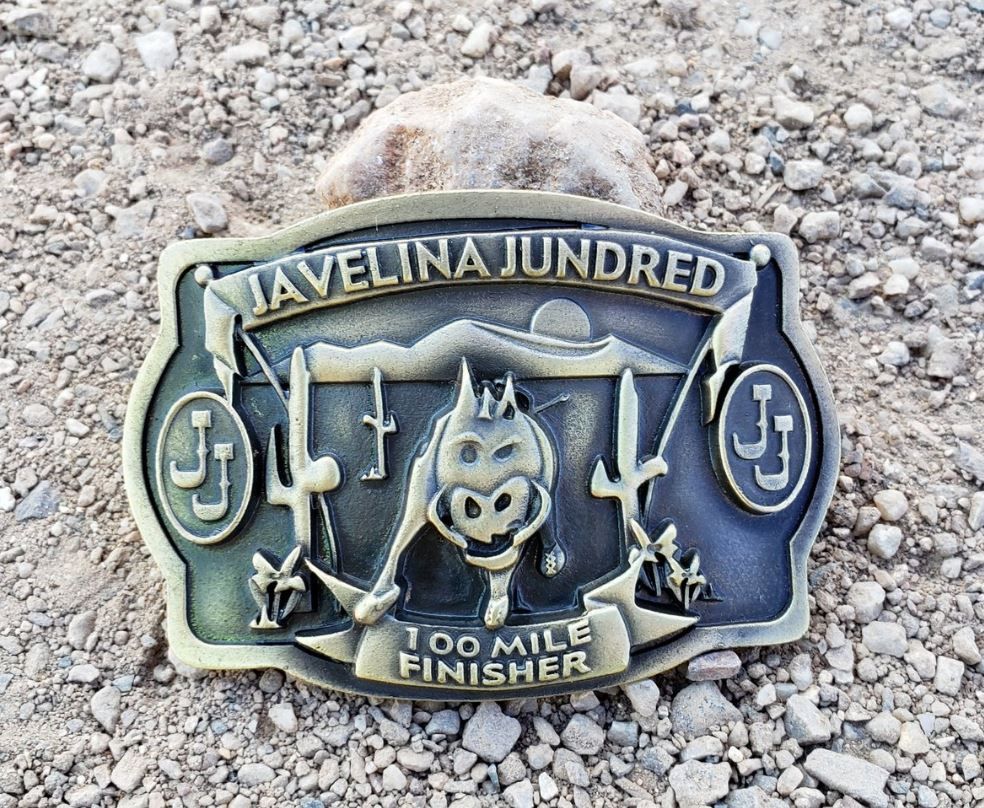
We started this series with distance runner Chris Walsh sharing the mental skills that helped him get through his first 100-mile race (the Javelina 100), detailing the “why” that fuels his training, and talking about the strength he gets from the tight-knit endurance community. In this continuation of the conversation, Chris gives some mindset tips for novice athletes, reveals his running playlist, and explains how he utilizes the Champion’s Mind app.
What do you do to maintain a positive state of mind during training runs and races?
To keep myself in the present I synch my inhales and exhales with my foot strikes. One of the things I've learned to tell myself is that I trust my training, I trust my plan, and, most importantly, I trust myself. I’m the one controlling the challenge and I’m unstoppable. Sometimes I say, “Get your ass moving.” It all depends where I’m at, because each challenge is different. There's really no one size fits all thing.
What mindset tips would you give to someone who, like you when you were getting back into running, wants to run farther but isn’t sure they can?
Just like you need to put in the physical miles, you need to put in the mental miles and just let yourself know that you can do it. Try to visualize that finish line and just see yourself out there, see yourself doing it. That helps, especially when you're out on the course and you're struggling. If you have the confidence in yourself that, “Yeah, I'm going to finish this,” then you're probably going to finish.
What impact has mental skills work had on your life outside sports?
I'm from Boston, so I'm your typical Masshole. But I've mellowed out and I think some of that is from the mental training. Some of it is age, and also just relaxing more. I hope that I've become a better person. I’m trying to be more patient with people and realize that they've got their problems too. They're going through something and I need to see it from their perspective. It's not all about me.
How are you using the Champion’s Mind app to complement what you’ve learned from Jim’s books?
I tend to go back to my favorite audios. There are a couple of things in the Mindsetter portion that are good and help me focus on the project at hand. When I find something that works, I stick with it until it doesn't. I like to listen to the audios at night before bed as well. They put me in a good mindset, get me to calm down and relax, and help me sleep better. I found this MP3 of Tibetan singing bowls and it’s nice to shut off my brain and chill out to that as well.
Do you listen to music while you’re running too?
Yes. If I'm doing a longer run, I'll throw on some Grateful Dead or some other long, jammy stuff. If I need to get going, I'm a big fan of metal, so I'll draw on some Metallica or Judas Priest. If it's loud, I'll listen to it. Loud and fast.
How do you typically plan your training?
Sometimes it can be hard to get yourself motivated to get out there and train, but I also consider it to be another part of my daily schedule. If it's a day to run, I run. If it's a rest day, I take the rest day. I also do yoga once a week to keep myself loose, so it's really just a matter of trying to stick to the plan, just like anything else. Even when I travel for business, I plan ahead. I always figure out a block of time when I’ll be able to squeeze in an hour on the treadmill, or even a half hour just to get some work in.
It seems like the running community means a great deal to you, whether it’s other competitors encouraging you during a race or you interacting with a bigger group online. Can you talk a bit more about that?
One of the things I really love about trail running is that it's less about the competition, and more of a community thing where everybody is running together. Where they're hurting may be different, but everybody's going through something. Most trail courses are done on a loop and it’s a washing machine course, which means that you do one lap clockwise and the next counterclockwise. As the lead runners cross your path, they'll shout encouragement and give you a thumbs up. Then you do the same with people who are behind you.
It's similar with social media. Everybody's rooting for each other and trying to help people get through rough patches. You give somebody a pat on the back when they're doing well. You'll get kicked in the butt if people see you're underperforming. It's a very supportive community.
